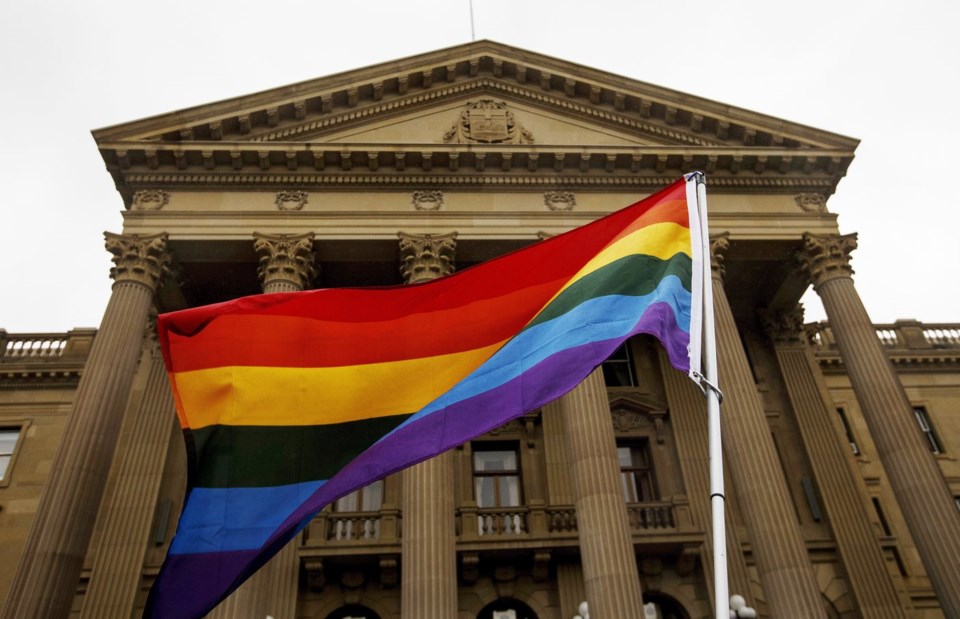EDMONTON — A politician banned over a year ago from sitting in Alberta’s governing United Conservative Party caucus for comparing transgender youth to feces is now allowed to join and says she has grown from the experience.
Jennifer Johnson, in a short video posted to social media Wednesday, said, “Prior to being elected, I used an inappropriate analogy while discussing education policy surrounding trans youth. And for that I sincerely apologize.”
She added, “I want all children working through gender identity issues to know that you are cared for, valued and respected.”
Johnson, who represents Lacombe-Ponoka, was told during the during the spring 2023 election that she would not be allowed to sit in caucus after comments surfaced from a 2022 meeting in which Johnson compared transgender youth to a batch of cookies laced with "a little bit of poop."
Alberta Premier Danielle Smith said at the time Johnson could come back if she worked to educate herself.
Johnson, in the video, recounted that she has met with many LGBTQ+ advocates from her constituency, the province and the country in the last year and a half.
"While not every conversation was easy, I listened and heard from diverse perspectives," she said Wednesday. "I am grateful for the chance I've had to grow from this experience and meet some really beautiful people along the way.”
Johnson said she met with the UCP caucus earlier Wednesday and they voted to allow her in.
In a news release, the caucus said her status as a UCP legislature member takes immediate effect. It said she has "engaged on topics of importance" with LGBTQ+ advocates and is "committed to continuing that work."
"After having a very thoughtful discussion with our caucus team, our MLAs voted to acknowledge her hard work, recognize her efforts, and welcome her into the government caucus," UCP member and government whip Shane Getson said in the statement.
Johnson’s outreach to LGBTQ+ groups took place in September. A subsequent statement from five of those groups said Johnson failed to rebuild trust with their community, particularly given she would not acknowledge transgender women are women.
Victoria Bucholtz, a transgender Albertan and member of the group Queer Citizens United, said she wasn’t surprised by the caucus's move, calling it a sign of the “increasingly tone-deaf reaction that this government has towards the voices of the trans community.”
“They are in a radical right-wing echo chamber,” Bucholtz said in an interview.
“(Danielle Smith) is not listening to doctors, lawyers, trans parents, parents of trans kids, trans kids themselves. She is moving along, trying to throw red meat to … an extremely transphobic part of the UCP membership.”
Smith, in a statement, said the decision acknowledges Johnson's commitment to learning and growing from what happened.
"Our UCP caucus remains committed to supporting LGBTQ+ Albertans and ensuring that everyone feels welcome and safe in our province," Smith said.
Bucholtz said advocates will oppose Johnson’s return to caucus on top of Smith’s slate of promised gender policies requiring parental consent and notification for pronoun changes in schools and banning transgender athletes from female sports in non-recreational leagues.
This report by The Canadian Press was first published Oct. 9, 2024.
Aaron Sousa, The Canadian Press



